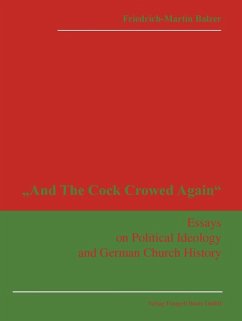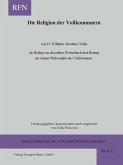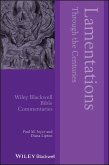Friedrich-Martin Balzer's publications have attained attention at home and abroad and found their way into many libraries and scientific works worldwide. Worldcat.org lists more than 70 publications, 13 of which are catalogued in the Library of Congress. Konrad Jarausch, teaching at Chapel Hill in North Carolina, in his book "After Hitler. Recivilizing Germans. 1945-1995 (Oxford University Press 2006), chooses a shocking speech by the 19 year-old Balzer in 1960 as a convincing example of restoring the civil liberty destroyed by the Nazis. Eric Hobsbawm, in connection with Balzer's publication "Blick in den Abgrund" (Bonn 2002), speaks of a "significant contribution to the history of Germany in the years of transition to Hitler". To Hobsbawm "Blick in den Abgrund" represents "not only an important contemporary testimony of the time when Hitler rose to power, but also something which is too often forgotten - the radical leftwing element in German Protestantism in the Weimar Republic". In his introduction to the first publication of the written judgement in the Frankfurt Auschwitz-Trial (Bonn 2004) Balzer reminds the reading public of the very few theologians who strongly warned and protested against the rising fascism. "After 1945, the role of the churches during the Third Reich was depicted by the survivors as a heroic struggle to maintain their institutional autonomy and ideological integrity in the face of Nazi persecution or theological perversion. [...], as more documentation became available, younger historians have adopted a more sceptical stance, and a certain amount of overdue 'demythologization' has taken place. Left-wing critics especially have pointed out that the Church Struggle was never in fact against the Nazi state as such, and that the majority of churchmen, whether Catholic or Protestant, remained throughout in favour of Hitler's nationalist, and even his anti-Semitic objectives. The silence of the churches on such occasions as the notorious and very public Crystal Night pogrom in 1938, or their chorus of praise for Germany's victories in 1940, are evidence of their real political stance." (John S. Conway) In German Studies, Balzer is seen by John S. Conway from the University of British Columbia as an example of this "revisionist" point of view. "Not only does he demonstrate that the German Protestant churches were, and have remained, bastions of a conservative political consensus, but he suggests that their leaders' sermons and speeches were primarily prompted by the desire to provide theological justifications for such reactionary views. True Christianity, he believes, consists in supporting a democratic, or better still a 'socialist' political order. [...] More positively, he seeks to rescue from oblivion the history of the few pioneers of a 'religious Socialism', particularly in the 1920s, such as Erwin Eckert, a radical preacher whose adherence to the Communist Party [after his exclusion from the Social Democratic Party] made him an outcast to the majority of his colleagues. [...] Balzer's achievement is, however, to show that there were alternatives in the German churches to the majority's antidemocratic, patriarchal, and authoritarian attitudes. Only a tiny minority upheld the antinationalist, anti-imperialist causes of democracy or of peace, and frequently they paid a heavy penalty. As such they deserve to be remembered [...]" With "And the cock crowed again" a selection of Balzer's essays is presented here in an English translation for the first time.
Dieser Download kann aus rechtlichen Gründen nur mit Rechnungsadresse in A, B, BG, CY, CZ, D, DK, EW, E, FIN, F, GR, HR, H, IRL, I, LT, L, LR, M, NL, PL, P, R, S, SLO, SK ausgeliefert werden.









